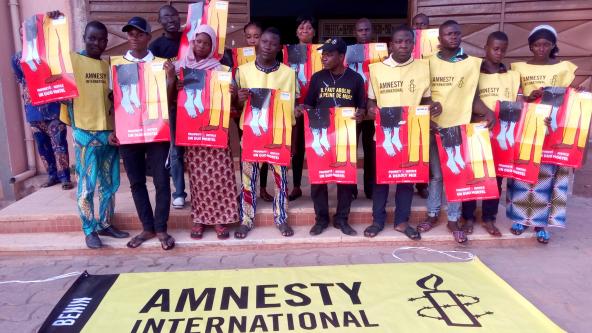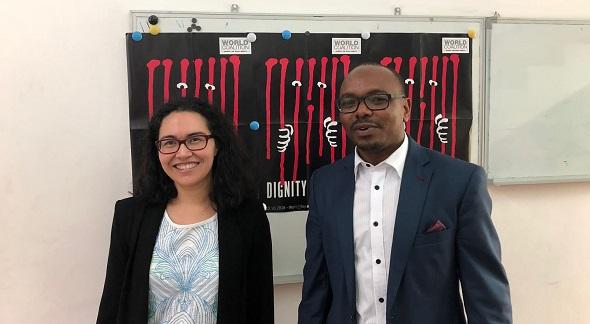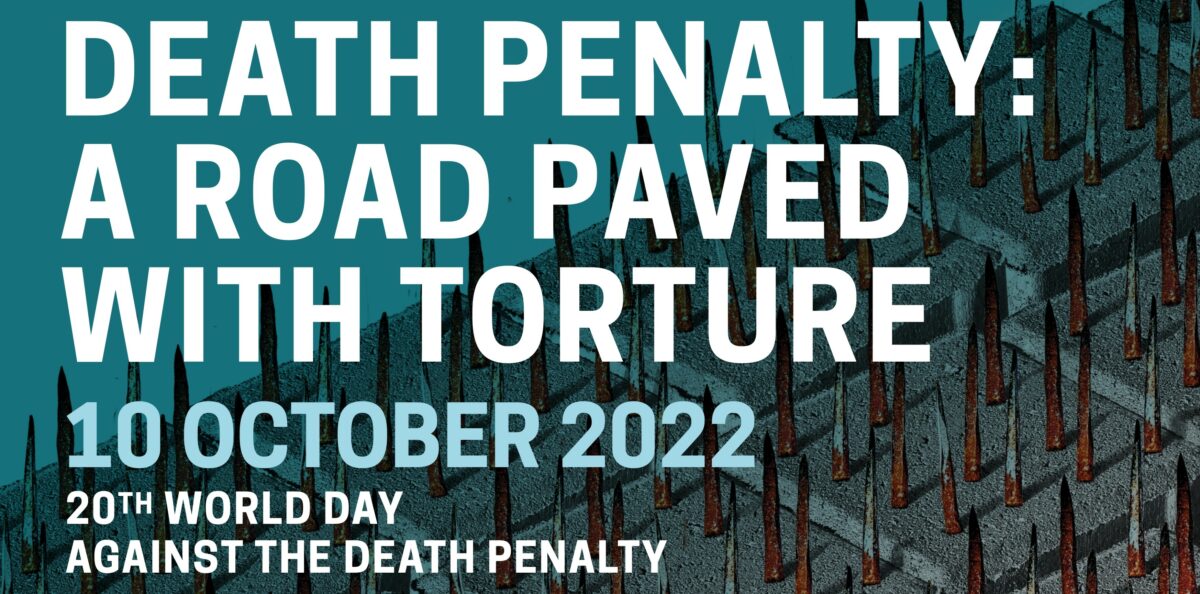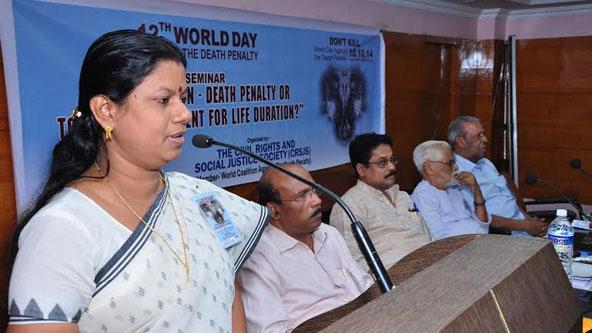
Strong mobilization in Sub-Saharan Africa on World Day
World Day
A strong mobilization
On October 10, 2017, 30 events have been recorded so far in Sub-Saharan Africa. These events were as numerous as diverse. Many organizations such as ACAT Benin and the Legal Human Rights Center in Tanzania organized debates and panel discussions. Many of them were on this year’s theme: poverty and the death penalty. For instance, the Foundation for Human Rights Initiative organized a debate on poverty and the death penalty in Kampala, Uganda. These debates underlined why people living in poverty are at a greater risk of being sentenced to death and executed. In a conference on “poverty and justice” organized by ACAT Benin, Valéry Houangni emphasized how people from poor economic background struggle to access justice: “To defend yourself, you need a lawyer. Consultation fee will cost you 50,000 Francs and contingency fee may amount from 10% to 15%” she said. Other organizations tailored their events to the needs of the civil society. Hence, RACOPEM and Association Droit et Paix co-organized in Cameroon a panel discussion on the importance of side investigation for lawyers with the aim of providing Cameroonian lawyers tools to ensure an effective representation in a country where death sentences have dramatically increased.
World Day events, however, were not limited to conferences. Other organizations such as Community of St Egidio, ICJ or Amnesty International Benin visited death row prisoners in Kenya and in Benin. In Uganda, Foundation for Human Rights Initiative spent three hours in a solidarity visit to the death row prisoners both in the male and female sections to manifest their support to prisoners and let them know they were not forgotten. Indeed, one of the main goal of this mobilization was to raise awareness about the death penalty and highlight the impact on prisoners and their families. In that regard, many awareness campaigns took place all around Africa. Pax Christi-Uvira arranged several meetings between students and educators in the Democratic Republic of the Congo. The main goal was to alert young generations about the death penalty and the flaws of the criminal justice system. The Children Education Society (CHESO) in Tanzania also targeted children and teenagers by organizing a “Draw me the abolition” exhibition in partnership with ECPM. Thus, thanks to this broad mobilization, the abolition of the death penalty was widely debated.
A broad media coverage
Media coverage was also a key factor in the World Day Against the Death Penalty’s success. In Kenya, News Centre interviewed John Muthuri from the Africa Prison Project to discuss how the judiciary was about to construe differently the notion of mandatory death penalty. In Mali and Benin, national televisions followed the debate organized by ACAT Benin and ACAT Mali. Newspaper massively circulated press releases from abolitionists, especially in Botswana where retentionist movements prevail. Despite judicial and political disparities among countries, the message remained the same: the complete abolition of the death penalty, in law and in practice. As to this day, the African media coverage of World Day events represents 18 % of the worldwide media coverage.
This strong mobilization, hence, put the abolition at the center of political debates. In Tanzania, for instance the newspaper The Citizen stated: “Pressure is mounting to abolish the death penalty”. In Ivory Coast, the newspaper Abidjan.net questioned the government’s inertia regarding the ratification of the Second Optional Protocol of the International Covenant on Civil and Political Rights aiming at the abolition of the death penalty. Abolitionists’ mobilization also had an impact beyond the African continent. Several Embassies responded to the African organizations’ calls. The Delegation of the European Union in Uganda joined the Foundation for Human Rights Initiative in its solidary visit and released a press statement urging for the abolition of the death penalty in Uganda. This awakening has pushed abolitionists to go even further in their advocacy.
Categories
Public Opinion





